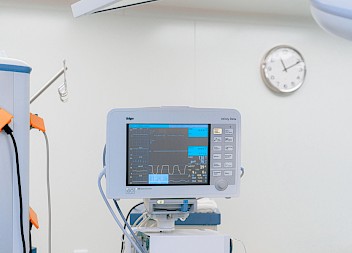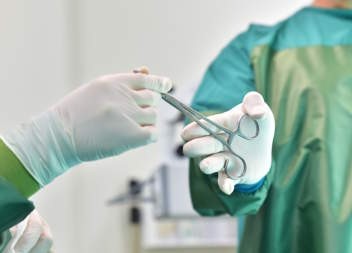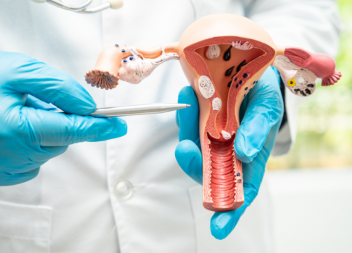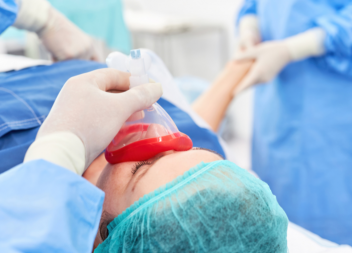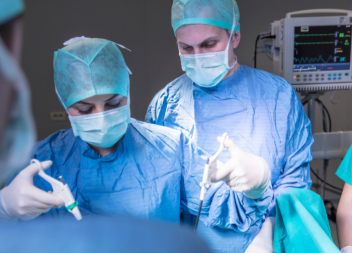Gynaecological issues are the largest contributor to all clinical negligence claims we receive here at Medical Solicitors. The reproductive system is a complex piece of biology and needs highly specialised medical care. Unfortunately, those in training, as well as at times more experienced surgeons, do make mistakes and cause injuries to women, with devastating consequences.
Caroline Moore specialises in gynaecological clinical negligence claims. In October 2020 she recovered £160,000 damages for a woman in her 70s who suffered colonic and uterine perforations during an investigation to check for womb cancer. The claimant needed a stoma fitted which was not reversed for almost two years, seriously impacting her quality of life and causing her major depression and loss of confidence. She also suffered chronic fatigue and remains at risk of needing surgery in the future for adhesions and an incisional hernia.
In 2017, the claimant was referred to the gynaecology department at Doncaster and Bassetlaw Hospitals NHS Foundation Trust. This was after a pelvic ultrasound to investigate abdominal pain showed post-menopausal abnormal thickening of the womb’s lining.
With initial findings raising the possibility of endometrial cancer, further investigations were recommended including a hysteroscopy to examine the womb. However, the first attempt failed as the hysteroscope was wrongly inserted into the bladder owing to a prolapsed uterus.
The procedure was attempted again, this time under general anaesthetic, which confirmed the presence of a benign looking polyp together with thinning of the womb’s lining which is normal in post-menopausal women.
During the procedure, blind attempts were made by a trainee specialist to pull away the polyp without visualisation. A consultant took over and removed the polyp piecemeal. Following this, a second look with the hysteroscope revealed that the majority of the polyp had been removed, with a note that said there was sight of adipose tissue – body fat that shouldn’t be in the uterine cavity.
It was recommended C stay in hospital overnight and be given IV antibiotics for 24 hours; she was told she could go home when she could eat and drink. However, immediately after surgery she felt unwell, and she repeatedly vomited when trying to eat. Overnight, her pain and temperature increased, and she was given morphine, oramorph and codeine. The next day, C was in severe pain, unable to move, and had a swollen abdomen.
After a CT scan in the afternoon, an emergency laparotomy was undertaken later in the evening. Faecal contamination in all four quadrants of the abdomen was found as a result of a perforated colon. Two further perforations were found at the top of the uterus. A colectomy (Hartmann’s) and colostomy were performed, and a stoma fitted. She then suffered further complications of recovery when her wound reopened, having to carry around a vacuum pump until early December 2017.
Following her stay in intensive care, C developed chronic fatigue owing to loss of muscle mass after being critically ill. She could not have the stoma reversed until June 2019 due to steroid medication she was having to take for rheumatoid arthritis.
Clinical negligence proceedings
On the advice of Caroline, the defendant trust began a Serious Untoward Incident Investigation (SUI) which concluded that there was no suspicion of a perforation during surgery, despite the clear note of ‘adipose tissue’. Extensive criticisms were raised by Caroline of the SUI report; however, a response to such criticisms was never received.
However, after Caroline had obtained an independant gynaecological report, and served a Letter of Claim, the defendant backtracked. It was admitted the hysteroscopy was performed negligently, resulting in perforation to the womb and distal colon. They also admitted they shouldn’t have removed tissue from the uterine walls given the presence of adipose tissue, and that there was a failure to perform an immediate diagnostic laparoscopy. It was admitted that had they immediately spotted and repaired the injuries, C would have avoided the need for the Hartmann's procedure and stoma.
The case settled out of court for £160,000, with claims for past and future care costs and medical treatment including seeing a psychiatrist for her depression. There was an interim payment on account of compensation of £50,000 pending final conclusion and further investigations into causation issues, during which time opinions were obtained in the fields of colorectal surgery, psychiatry and rheumatology.


